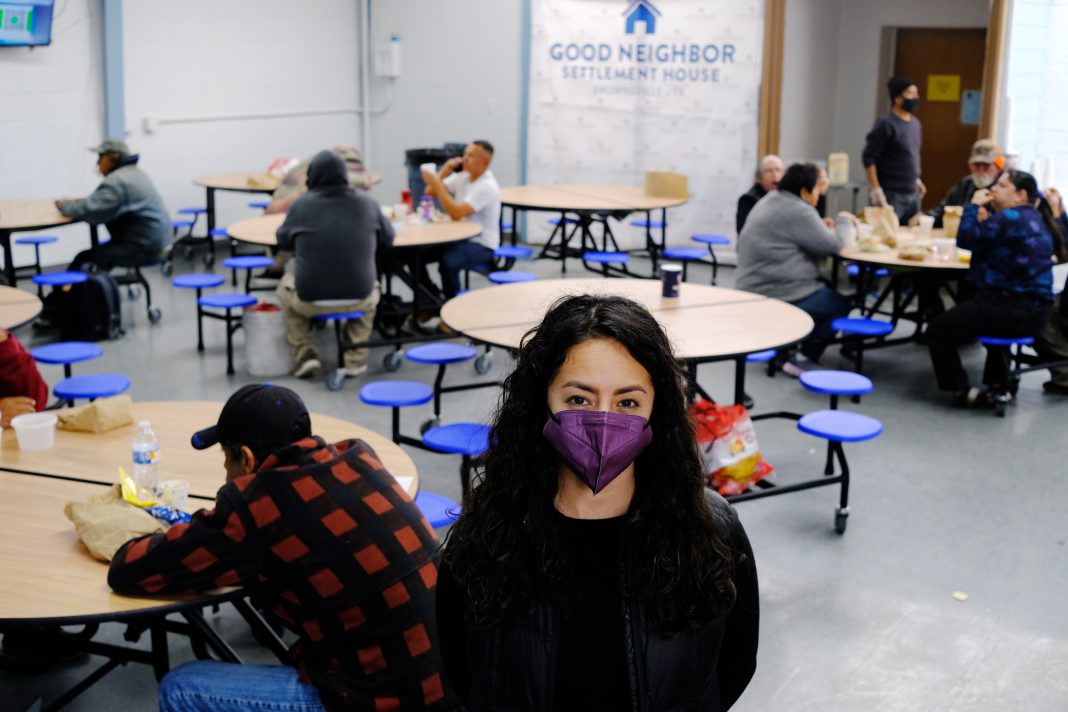Seventy years ago, the women from the First United Methodist Church in Brownsville decided to put their faith into action by opening the Good Neighbor Settlement House and help residents of the Buena Vida community. This week, they’re celebrating their continued commitment to their mission.
Good Neighbor Settlement House began as a place for helping women with settlement basic services, but over the years as the community grew around them, they adapted their services to address their neighbors’ needs. Thousands of men, women and children now benefit from their services.
“We are a safe haven for many,” Astrid Dominguez, the executive director said Friday as she described the role of their shelter in downtown Brownsville. “We are their community, and we ought to be that support network that’s helping them and cheering them [on] so they can get out of homelessness whenever they’re ready.”
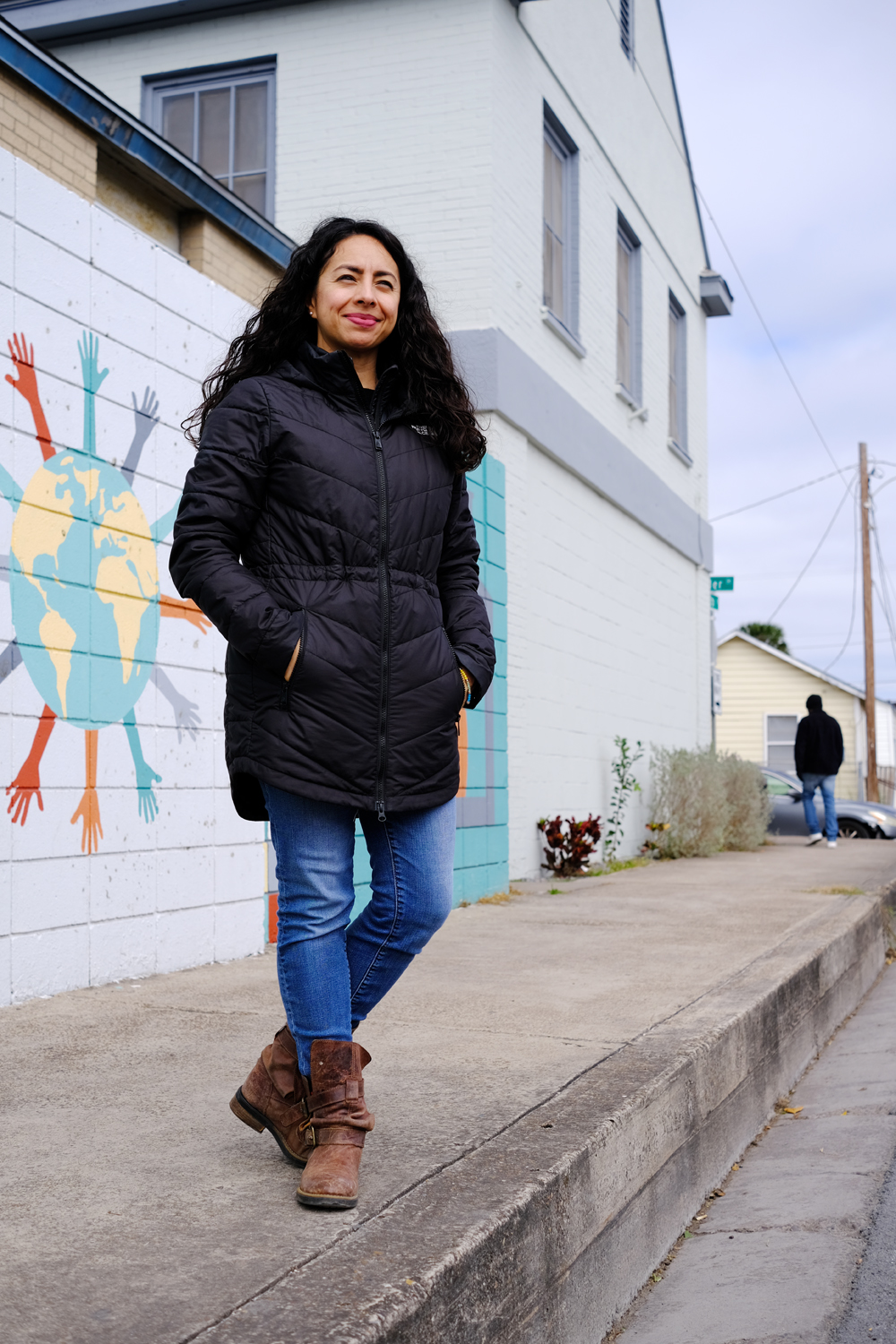
Dozens of people wearing hats, jackets and gloves lingered about the grounds Friday following the lunch hour when dozens showed up at the soup kitchen in search of a warm meal.
About 100 to 140 people show up for each meal served, breakfast, lunch and dinner, Dominguez said.
“Our soup kitchen is the heart of Good Neighbor,” the executive director said. “We provide three meals a day, five days a week, to anybody who walks through our doors — no restrictions. No one’s turned away.”
Families struggling to place food on the table also visit Good Neighbor’s Mesa Llena food pantry which opened in 2018 and helps about 500 to 600 families every month.
Unhoused community members can find a place to shower, do their laundry and receive toiletries through their hygiene program. In 2022, over 8,100 people took a shower at the shelter and about 2,760 washed their laundry there.
Nine people were also able to find permanent shelter through the help of the Good Neighbor Settlement House staff, Dominguez said.
“Housing should be the mission, but it has to be in conjunction with a support network, making sure that that client can maintain and be self-sufficient,” Dominguez said. “Not everybody’s there, right? So we need to meet clients where they are.”
Case managers often help clients fill out forms to get an ID or a copy of official documents like birth certificates. Good Neighbor’s unhoused clients can also use the shelter’s address to receive mail, including medicine. In 2022, about 2,800 mail items were sent to the shelter.
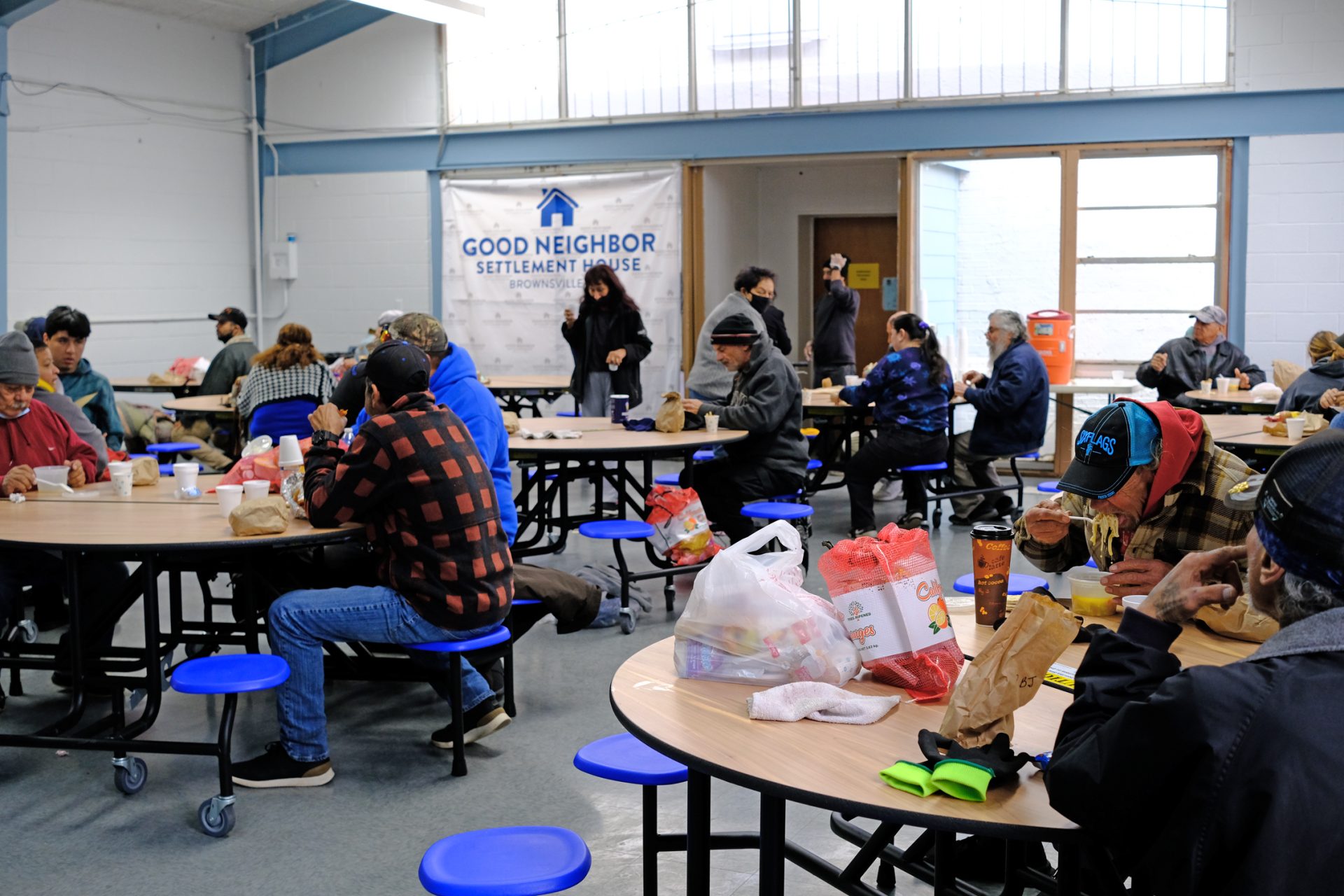
Although there’s only two staff members dedicated to case management, Good Neighbor also does street outreach to take hygiene packets, blankets, hand warmers and other basic items to those who are living on the streets of Brownsville.
Many who receive help, though, are just passing through.
Last year, Good Neighbor shared hygiene packets, clothes, baby formula and diapers with about 102,000 immigrants who were released from federal custody into the city of Brownsville.
In 2018, Good Neighbor opened its doors to shelter migrants overnight, but after the pandemic shifted needs and changed capacity limits, their assistance changed. They partnered with the city and other nongovernmental organizations to provide humanitarian support at a welcome center downtown where they continue serving.
Dominguez credits the experienced staff and dedicated volunteers who support Good Neighbor with their time and talents.
Volunteers come from schools and some are court-mandated to help. But they have walk-ins who just show up.
“There’s some people like the Gateses,” Dominguez said, referring to Debbie and Jim Gates. “They started four years ago and never left.”
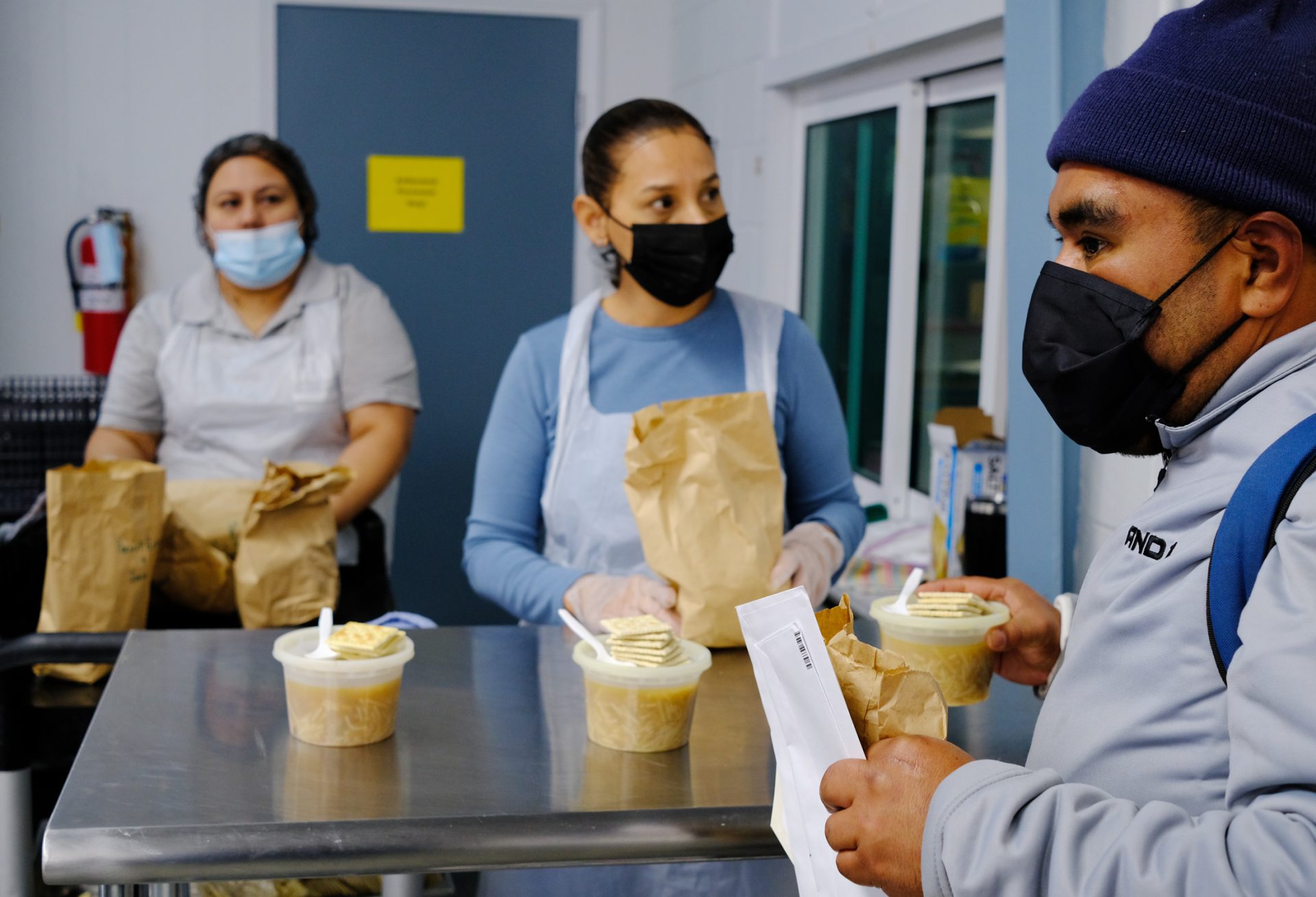
The couple was busy organizing donated clothes in a large closet where dozens of large plastic boxes housed shoes, shirts, and pants of all sizes for men, women and children.
Debbie and Jim Gates, both 64 years old, felt drawn to help when they came by to donate clothes four years ago and stopped to talk to a fellow church member who happened to work at Good Neighbor.
“While we were talking, somebody brought in a pickup load full of jeans and threw them in the doorway. So in order to get out, we had to start,” Debbie said.
“Folding clothes,” her husband, Jim, chimed in.
Debbie and Jim moved to the Valley 40 years ago, just a few years after the pair of 18-year-olds got married with hardly any money in their pockets.
“We know what nothing is. We started out with nothing,” Jim said. “We started out with five bucks in our pocket the day we got married. That was it. That’s all we had and a van. Just the clothes on our back, a van and $5. I mean, pretty much we had enough to pay the preacher.”
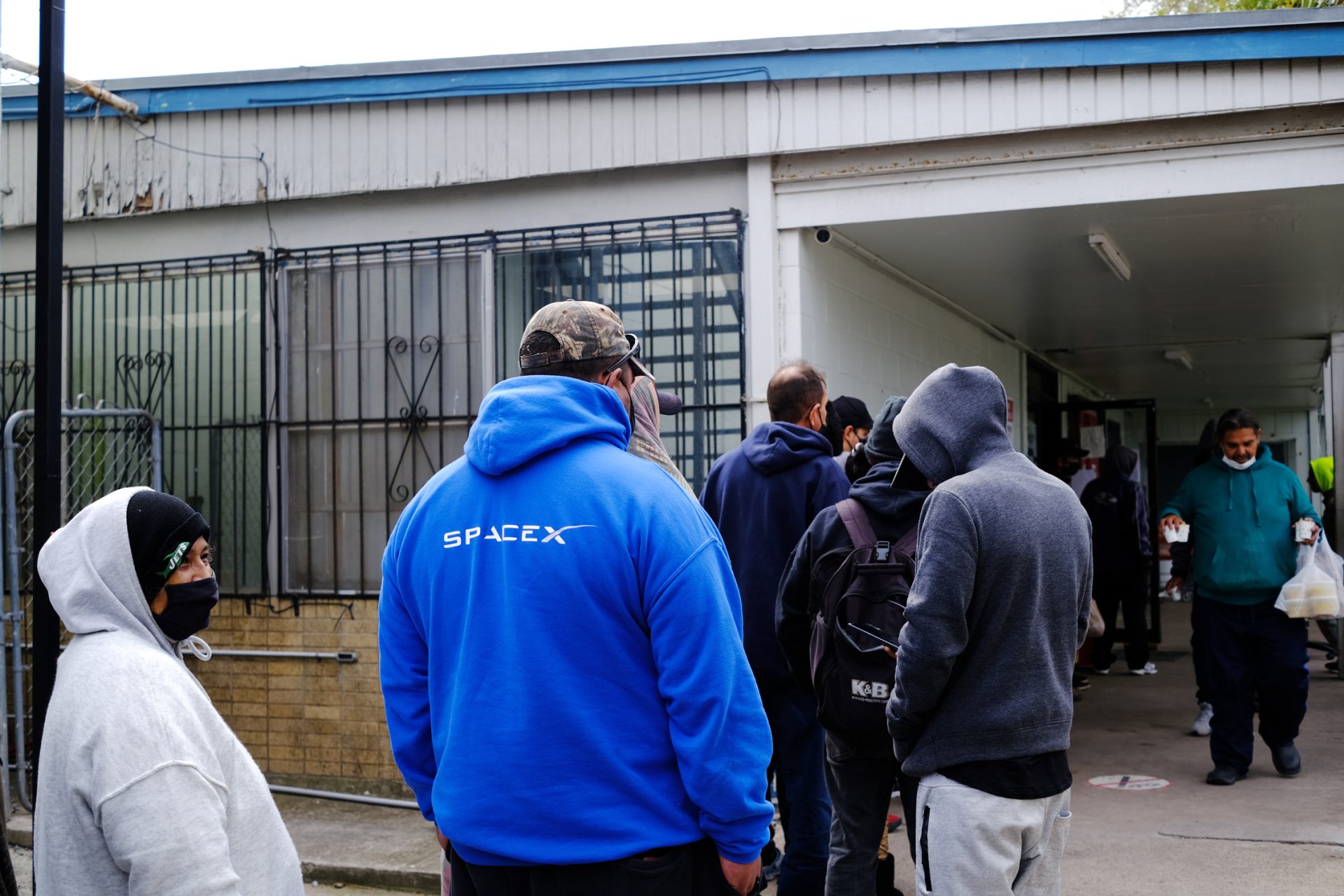
Debbie worked as a secretary for 20 years and raised her children before joining her husband in the truck driving business where they drove more miles than the average person will see in their lifetime.
“I have eight lifetimes,” Jim said, referring to the 8 million miles he drove on the job. He credits their work experience for their current work ethic.
“When we first came down, we were spending like 8 to 10 hours a day,” Debbie said. “Yeah, we were coming in at 8 o’clock in the morning and we would be here till 8 o’clock at night.”
“We used to drive, or be on the road like 24 hours a day. So we don’t know what time is. We just work until the job’s done,” Jim added.
“We’ve been locked in a couple of times,” Debbie said, chuckling a bit.
“We’re not time-watchers,” Jim explained.
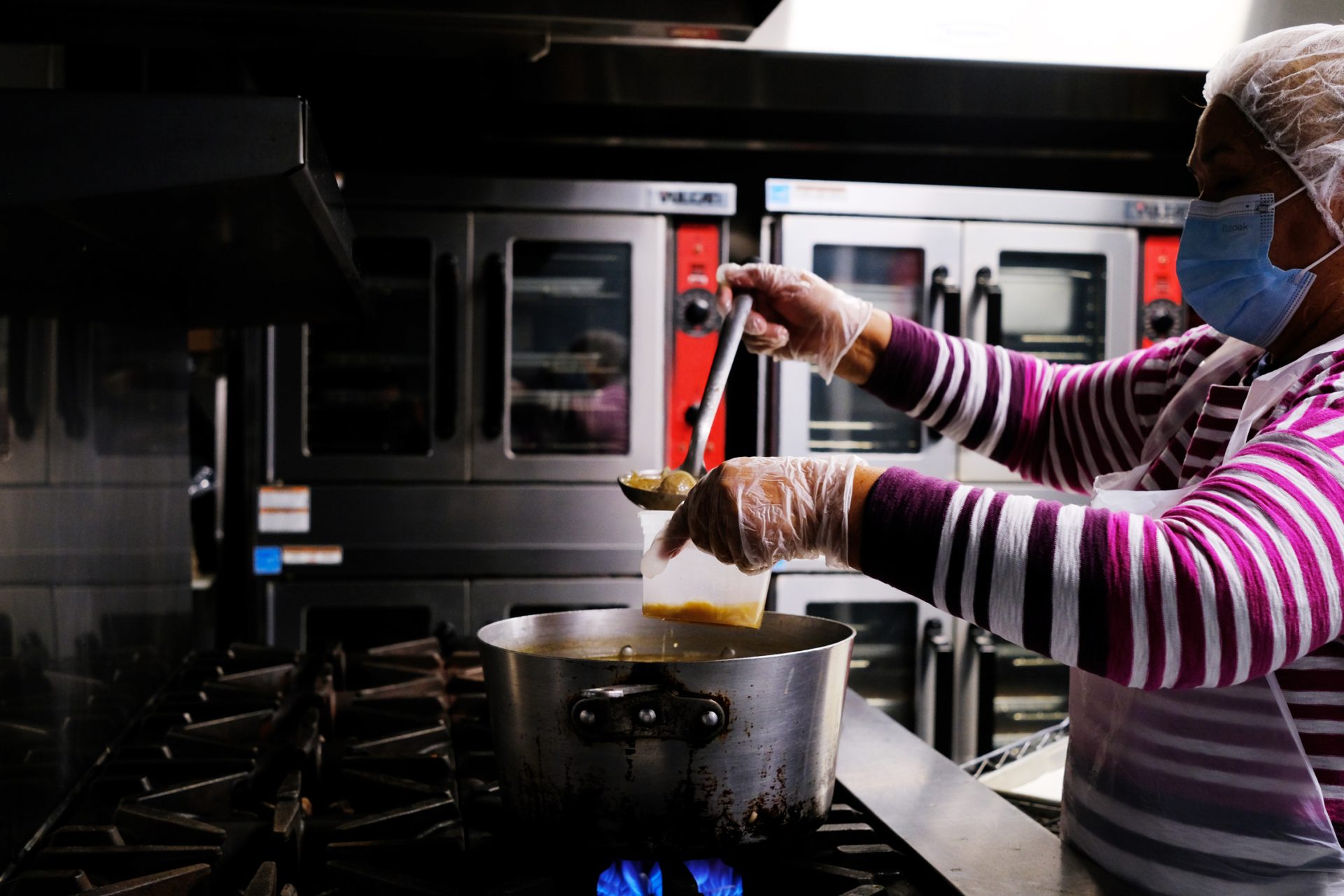
While the Gateses may not take notice of the time, the community will be taking note of Good Neighbor Settlement House’s 70th anniversary through a series of events scheduled throughout the week.
Special guests will be preparing special food, providing haircuts and medical services to Good Neighbor Settlement House residents throughout the week. On Tuesday, the Brownsville City Commission will be reading a proclamation to honor Good Neighbor’s role in the community for 70 years.
Dominguez, who’s nearing her first year as the executive director, looks forward to the ceremony, but said she’s grateful for all she’s experienced so far.
Dominguez said, “I’m humbled to be here and see and witness the best of people.”

